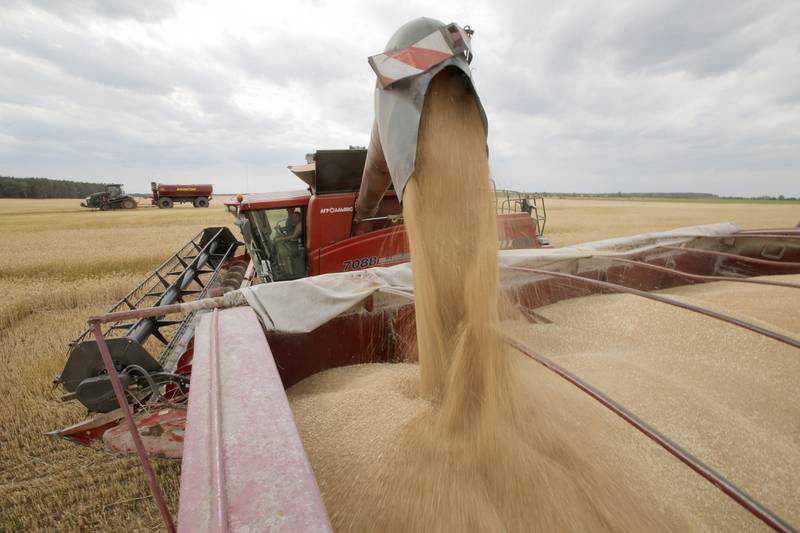Africa faces grain shortage and sharp rise in food prices if Ukraine exports stop

Africa is facing possible shortages of grain and a sharp rise in food prices if exports from Ukraine to the continent cease amid Russia’s invasion of the country. If cereal exports from Ukraine stop, that would also be felt in European markets such as Germany, albeit to a lesser extent, Germany’s Kiel Institute for the World Economy research institute said in a report on Friday.
Ukraine “is one of the most important grain exporters in the world, and especially relevant for Africa”, said Hendrik Mahlkow, a trade researcher at Kiel Institute. “Losing Ukraine as a supplier will noticeably worsen the supply situation across the continent.”
Ukraine and Russia together account for about 29 per cent of the world's wheat, and nearly a fifth of the corn trade, in addition to also being important sources of other commodities and metals. The conflict has led to a surge in commodity and metal prices, adding to inflationary pressures on the global economy. The International Monetary Fund has warned the conflict and subsequent sanctions imposed on Moscow, will have a “severe impact” on the global economy.
Tunisia’s imports of wheat and other cereals would permanently decrease by more than 15 per cent and 25 per cent respectively, if Ukraine stops its exports due to the current conflict, Kiel's report said. Egypt, the Arab world’s most populous country, would also be affected. Its wheat imports are expected to slump 17 per cent and other cereals fall 19 per cent.
South Africa, along with Cameroon, Algeria, Libya, Ethiopia, Kenya, Uganda, Morocco and Mozambique would also see their wheat and cereal imports slide if Ukraine exports cease. “Ukraine is irreplaceable as a grain supplier, even in the long term. Its failure worsens Africa's supply and also drives up prices,” Mr Mahlkow said. “One way of increasing the world market supply of cereals quickly would be to reduce growing biofuel and to use the land for cereal grains.”
Such a move would affect three per cent of all of Germany's cropland, but the country should make an immediate move as sowing begins in the coming weeks, Mr Mahlkow said. Other cereals would become 24 per cent more expensive in the long term in Tunisia, almost 9 per cent higher in Algeria and Libya, and more than 4 per cent costlier in Egypt, according to the institute.
Wheat prices would go up by 9 per cent in Kenya, 8 per cent in Uganda, 5 per cent in Tunisia, 4 per cent in Mozambique and more than 3 per cent in Egypt, the report said. “The international community should now step up its efforts to help African countries improve their food production. This will make them more resilient to supply shocks in the long term and is also a smart strategy in light of the worsening climate change,” said Tobias Heidland of the Kiel Institute's Africa cluster. Western countries would be less affected than their African peers as they are less dependent on imports from Kyiv and “can better compensate for the shortfall”, the report said.
Previous Story
- Go to Africa partners with Dian Fossey Gorilla...
- In Africa, rescuing the languages that Western tech...
- Mena's quick-commerce market to be valued at $47bn...
- China eyes on building new naval bases in...
- Dhaka can explore CIS, other export markets: Stakeholders
- Explore new export markets, including Africa: experts
- Industrial Anti-Scaling Chemical Industry Size Current and Long...
- 96% MSMEs in Bangladesh lost income in Covid-19...